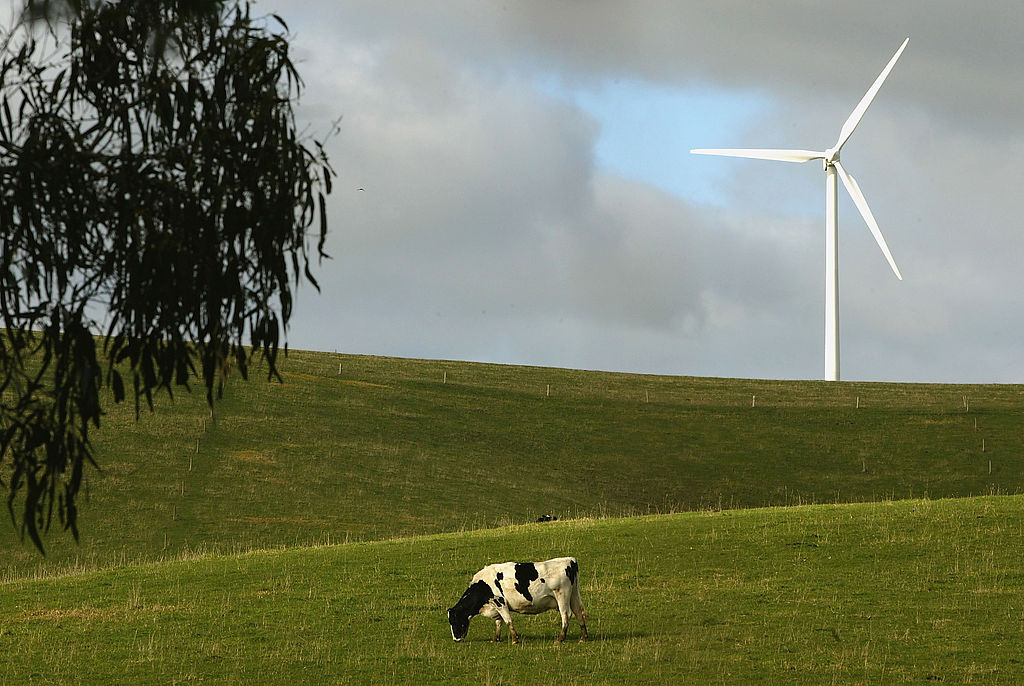'No sign of a slowdown' as greenhouse gas concentration hits record high again


A free daily email with the biggest news stories of the day – and the best features from TheWeek.com
You are now subscribed
Your newsletter sign-up was successful
Even as countries rush to cap or limit their emissions, greenhouse gas concentrations in the atmosphere have reached a record high — again.
The United Nations' World Meteorological Organization said Monday that globally averaged concentrations of carbon dioxide reached a record-breaking 407.8 parts per million in 2018. That surpassed the previous high, which was set the year before, and the WMO was feeling pretty pessimistic going forward.
"There is no sign of a slowdown, let alone a decline, in greenhouse gases concentration in the atmosphere despite all the commitments under the Paris Agreement on Climate Change," said WMO Secretary-General Petteri Taalas, adding that the last time the Earth experienced a comparable concentration of carbon dioxide was 3-5 million years ago.
The Week
Escape your echo chamber. Get the facts behind the news, plus analysis from multiple perspectives.

Sign up for The Week's Free Newsletters
From our morning news briefing to a weekly Good News Newsletter, get the best of The Week delivered directly to your inbox.
From our morning news briefing to a weekly Good News Newsletter, get the best of The Week delivered directly to your inbox.
Executive Director of the U.N. Environment Program Inger Andersen said the WMO's findings "point us in a clear direction" and that "we face a stark choice" to "set in motion the radical transformations we need now" or "face the consequences" of climate change. A report from the UNEP on the emissions gap will be released Tuesday. Read the WMO's full statement here.
A free daily email with the biggest news stories of the day – and the best features from TheWeek.com
Tim is a staff writer at The Week and has contributed to Bedford and Bowery and The New York Transatlantic. He is a graduate of Occidental College and NYU's journalism school. Tim enjoys writing about baseball, Europe, and extinct megafauna. He lives in New York City.
-
 Switzerland could vote to cap its population
Switzerland could vote to cap its populationUnder the Radar Swiss People’s Party proposes referendum on radical anti-immigration measure to limit residents to 10 million
-
 Political cartoons for February 15
Political cartoons for February 15Cartoons Sunday's political cartoons include political ventriloquism, Europe in the middle, and more
-
 The broken water companies failing England and Wales
The broken water companies failing England and WalesExplainer With rising bills, deteriorating river health and a lack of investment, regulators face an uphill battle to stabilise the industry
-
 The plan to wall off the ‘Doomsday’ glacier
The plan to wall off the ‘Doomsday’ glacierUnder the Radar Massive barrier could ‘slow the rate of ice loss’ from Thwaites Glacier, whose total collapse would have devastating consequences
-
 Can the UK take any more rain?
Can the UK take any more rain?Today’s Big Question An Atlantic jet stream is ‘stuck’ over British skies, leading to ‘biblical’ downpours and more than 40 consecutive days of rain in some areas
-
 As temperatures rise, US incomes fall
As temperatures rise, US incomes fallUnder the radar Elevated temperatures are capable of affecting the entire economy
-
 The world is entering an ‘era of water bankruptcy’
The world is entering an ‘era of water bankruptcy’The explainer Water might soon be more valuable than gold
-
 Climate change could lead to a reptile ‘sexpocalypse’
Climate change could lead to a reptile ‘sexpocalypse’Under the radar The gender gap has hit the animal kingdom
-
 The former largest iceberg is turning blue. It’s a bad sign.
The former largest iceberg is turning blue. It’s a bad sign.Under the radar It is quickly melting away
-
 How drones detected a deadly threat to Arctic whales
How drones detected a deadly threat to Arctic whalesUnder the radar Monitoring the sea in the air
-
 ‘Jumping genes’: how polar bears are rewiring their DNA to survive the warming Arctic
‘Jumping genes’: how polar bears are rewiring their DNA to survive the warming ArcticUnder the radar The species is adapting to warmer temperatures
